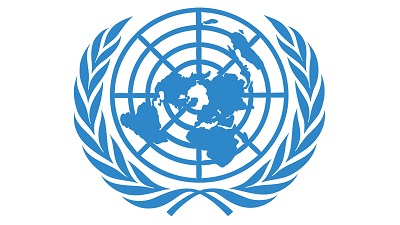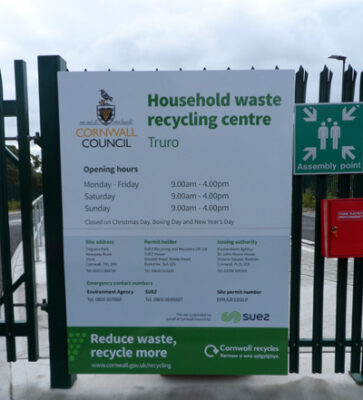
Plastic pollution of our marine and wider environment continues to cause great concern globally and locally. But how deep of a crisis is it? Have we reached a critical point where discarded plastic waste has become so embedded in our eco-systems that there will be consequences for the health and wellbeing of aquatic, marine and even human life? Hopefully not, but the signs are far from promising, unless decisive action is taken urgently to address this issue.
Two key global reports were produced earlier this year – 2022 – which suggest that there is, indeed, a crisis: in January a WWF (World Wildlife Fund) Report laid bare the damaging effects of plastic pollution on marine ecosystems. In February the OECD’s Global Plastics Outlook Report told us that the world is producing twice as much plastic waste as two decades ago, with the bulk of it ending up in landfill, incinerated, or leaking into the environment, and only 9% successfully recycled… and warning that plastic production is predicted to increase further.
 These reports have helped convince politicians from around the world of the need for an international treaty on plastic, and 175 countries in the United Nations agreed in March to endorse a UN Environment Assembly resolution to end plastic pollution, and to negotiate a treaty by 2024.
These reports have helped convince politicians from around the world of the need for an international treaty on plastic, and 175 countries in the United Nations agreed in March to endorse a UN Environment Assembly resolution to end plastic pollution, and to negotiate a treaty by 2024.
The WWF director-general welcomed the move, calling for world leaders to implement a treaty which
“addresses our current plastic pollution crisis, and enables an effective transition to a circular economy”
So, international agreement is now on the cards to tackle the scourge of plastic pollution, by focusing on developing the circular economy; reducing the usage of plastic,and, crucially, keeping plastic waste out of the environment.

What’s happening in the U.K.?
Our Government has made some progress, and point to the bans on plastic straws, stirrers and cotton buds; on products containing rinse-off microbeads, and the 10p charge on all single-use plastic carrier bags – all initiatives to be welcomed. Also the introduction, as from 1st April 2022, of the plastic tax on companies who fail to use 30% recycled plastic in their packaging, was well received.
They are committed to introducing
a) a Deposit Return Scheme (DRS) for littered drinks containers for England
b) an Extended Producer Responsibility System (EPRS) – which should result in producers covering the full net cost of recycling their packaging, and
c) achieving greater consistency in recycling provision across the country
all of which have been confirmed in the Environment Act of November 2021. But it is not clear what the timetable is for implementing these much-needed reforms.
Microplastics continue to be a major cause for concern. According to a report in September 2021 from the APPG (All-Party Parliamentary Group) on Microplastics, the microbeads covered by the 2018 UK ban represent only 2% of microbeads released into the world’s oceans.
The recent impressive Planet Patrol report on the “Extent of Single-Use Litter in the UK” 2021 (see here for full version as a PDF) warns that
“microplastics are having a serious impact across our natural world” with “marine life suffering fertility issues and endocrine disruption, and microplastic particles now being discovered in the human bloodstream”
The APPG has called for a Minister for Plastic Pollution to be appointed to oversee the control and prevention of plastic pollution – will this good idea be taken up?
The recent Environmental Audit Committee report into the Water Quality in our Rivers Report pulled no punches on the appalling state of our rivers in the U.K. One key recommendation is that plastic-based wet wipes need to be banned because of the blockages they cause in our sewage systems. But, if adopted by the Government, when would it take effect?
Some campaigning groups have accused the Government of dithering, it having launched and completed several consultations on these and other proposals. These include possible bans on single-use plastic plates and cutlery, balloon sticks and polystyrene cups and food containers – and also calling for evidence on other items including plastic wet wipes, cigarette butts, plastic sachets and single-use cups. The outcome of all these consultations is awaited with great interest.
 Greenpeace, who have been working on the issue of plastic waste for many years, is concerned at the lack of progress. This month they are carrying out the “Big Plastic Count“
Greenpeace, who have been working on the issue of plastic waste for many years, is concerned at the lack of progress. This month they are carrying out the “Big Plastic Count“
https://thebigplasticcount.com
designed to mobilize their supporter base to count the amount and type of plastic packaging householders get through in a week. The results could help provide hard evidence to show that bold action is needed to turn the tide on plastic.
Meanwhile, they are calling on Government to commit to:
- Reduce UK’s single-use plastic by 50% by 2025
- Ban plastic waste exports completely by 2025
- Introduce the promised Deposit Return Scheme (DRS) for drinks containers
and the Local Scene?
Here in Cornwall there is much good work going on with Surfers Against Sewage coordinating action on single-use plastic, and campaigning on similar issues to Greenpeace and the Marine Conservation Society.
The Plastic-free Community group in Falmouth works with Falmouth Marine Conservation and others on keeping beaches and the wider area free of plastic and other harmful litter.
Transition Falmouth has updated its local guides to “Turning Off the Plastic Tap” and to the local Circular Economy, while Transition Truro now has refreshed its local guide to recycling hard-to-recycle plastic items. Check websites for full details
To support the call for a DRS, one Transition group member, with very little effort, has collected and recorded over 900 littered drinks containers in the first four months of the year in the Truro area alone – one-third of which are plastic bottles – serving as a reminder that successful Deposit Return Schemes as in Australia, Norway and many other countries have seen recycling rates soar, with significant reductions in littering.
 Scotland is on course to introduce its DRS next year under the watchful eye of their Minister for the Circular Economy.
Scotland is on course to introduce its DRS next year under the watchful eye of their Minister for the Circular Economy.
https://depositreturnscheme.zerowastescotland.org.uk/
A welcome new rigid plastic recycling service has been introduced at seven of Cornwall’s Household Waste Recycling Centres (HWRCs). This means that residents can now recycle a variety of previously non-recycled plastic items such as clean buckets, bins, storage boxes and containers, water butts, garden furniture, rigid plant pots and crates. Locally, these items can be taken to the HWRCs at Truro (nr Waitrose), Longdowns, nr Penryn or United Mines – check Cornwall Council’s website for full details.

But are all the above developments enough to avert a full-blown crisis? Let’s be in no doubt that Plastic Pollution needs to be right up there with the Climate and Ecological Emergencies, requiring urgent cooperative action at all levels, locally, nationally and across the globe.
It is now impossible not to conclude that failure to do so could have serious irreversible consequences for the health and well-being of the environment, on which we, and future generations, depend.
Ultimately, we all need to reduce our consumption and use of plastic packaging; develop a circular economy for plastic; urgently phase out as much single-use plastic as possible; and above all, prevent plastic from entering the marine and wider environment in the first place; which will simultaneously help meet our goal of reducing our overall global and local carbon emissions.
“We do not inherit the Earth from our ancestors, we borrow it from our children”
(Native American wisdom)

WRAP – the organisation which supplied the circular economy image in this article – stands for Waste and Resources Action Programme.
They are a British registered charity working with businesses, individuals, and communities to achieve a circular economy, by helping them reduce waste, develop sustainable products, and use resources in an efficient way.
Their website contains a wealth of information on plastic packaging, the circular economy, action on climate change and much more https://wrap.org.uk/